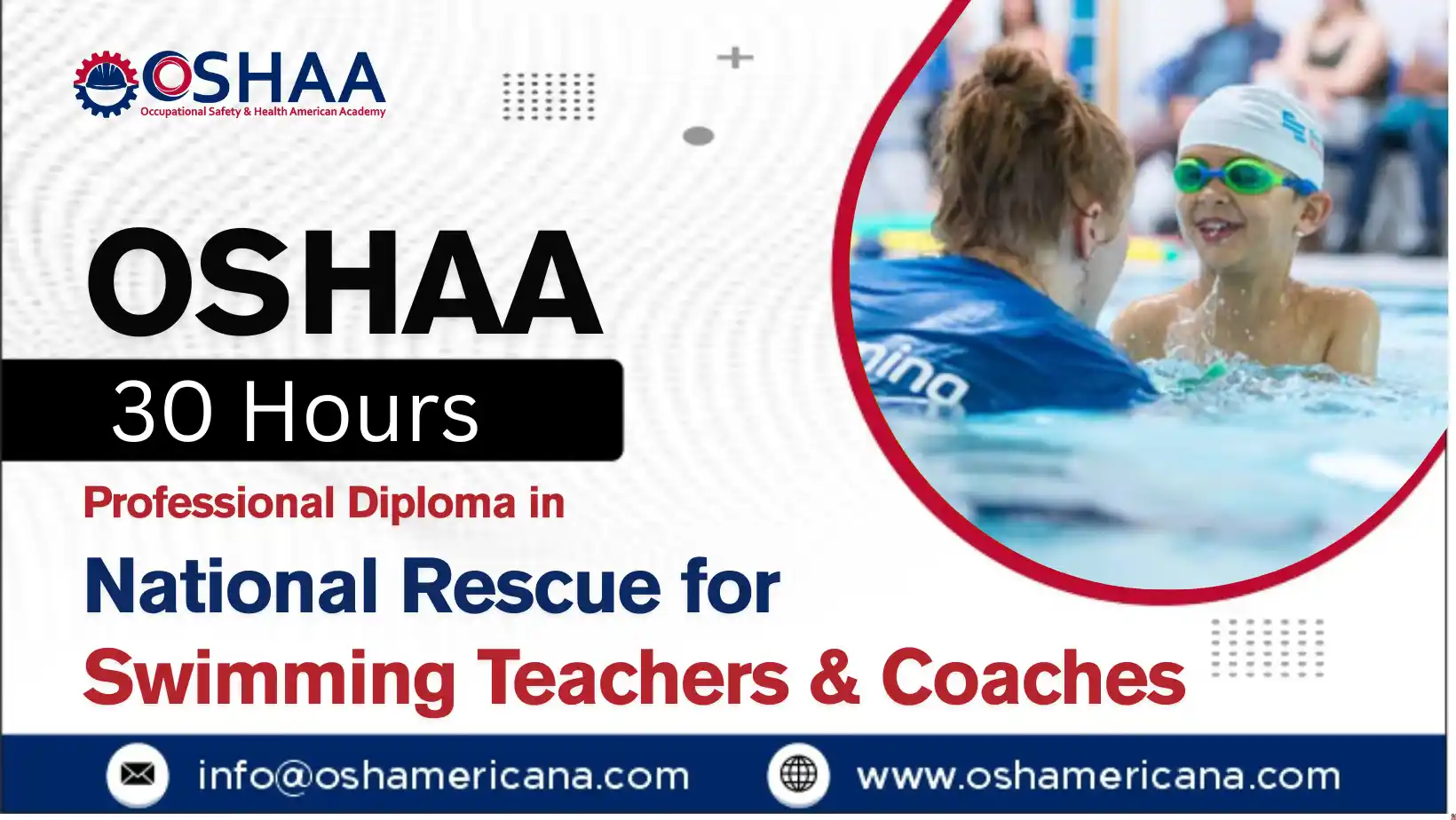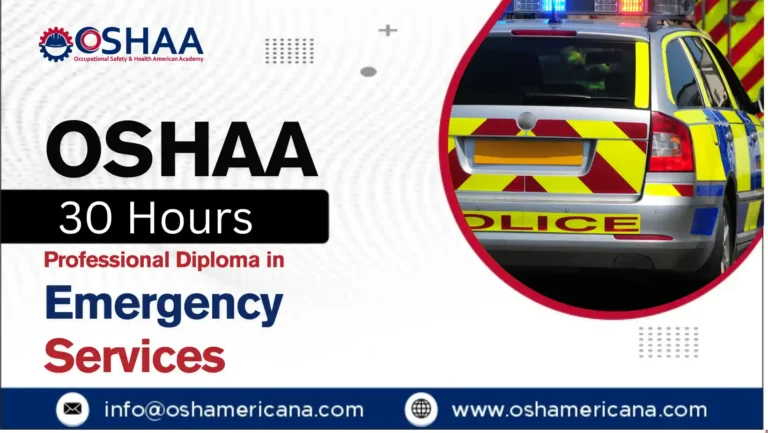OSHAA 30-Hours Professional Diploma in National Rescue for Swimming Teachers and Coaches (NRASTC) – Master Lifesaving Excellence
The OSHAA 30-Hours Professional Diploma in National Rescue for Swimming Teachers and Coaches (NRASTC) is a professional qualification designed to enhance the rescue capability, safety awareness, and emergency readiness of swimming teachers and coaches. Awarded by OSHAA, this programme focuses on equipping participants with the practical skills and theoretical understanding required to manage aquatic emergencies confidently within structured teaching and coaching environments. It supports professionals who play a direct role in swimmer supervision and safety, ensuring they are prepared to act effectively when incidents occur.
This diploma delivers targeted training in rescue techniques that are directly relevant to swimming lessons and coaching sessions. Participants develop the ability to recognise potential hazards, implement preventative safety measures, and carry out appropriate rescue actions while maintaining control and personal safety. The course blends essential theory with hands-on practical exercises, allowing participants to practise real-world scenarios and build confidence in applying rescue skills during live poolside situations.
Core learning areas include risk assessment, casualty care, emergency response procedures, teamwork, communication, and post-incident responsibilities. Participants also gain awareness of spinal injury management and coordinated responses with colleagues and emergency services. The OSHAA 30-Hours Professional Diploma in NRASTC is ideal for swimming teachers and coaches seeking to strengthen their professional competence, demonstrate commitment to safety standards, and contribute to a safer, more responsive aquatic learning environment.
OSHAA 30-Hours Professional Diploma in National Rescue for Swimming Teachers and Coaches (NRASTC)
Study Units
Learning Outcomes
Introduction to the Role of Swimming Teachers and Coaches in Aquatic Rescue (3 Hours)
- Understand the specific responsibilities of swimming teachers and coaches in pool safety and rescue
- Recognise the importance of their role in preventing and responding to aquatic emergencies
- Identify key skills required to support effective rescue operations
Principles of Aquatic Safety and Risk Management (3 Hours)
- Apply fundamental safety principles to aquatic environments
- Conduct risk assessments to identify and mitigate potential hazards
- Develop strategies to promote a culture of safety within swimming sessions
Understanding Swimming Pool Hazards and Prevention Strategies (4 Hours)
- Identify common hazards present in swimming pool settings
- Implement preventive measures to reduce risks to participants and staff
- Monitor and maintain safe pool environments through proactive management
Rescue Techniques for Swimming Teachers and Coaches (5 Hours)
- Demonstrate effective rescue skills tailored for swimming teaching and coaching scenarios
- Perform safe and efficient casualty extrication and water rescue techniques
- Adapt rescue approaches according to the situation and casualty condition
Casualty Assessment and Immediate Response Procedures (3 Hours)
- Conduct rapid and accurate assessments of casualties in aquatic incidents
- Apply immediate response techniques to stabilise casualties before further medical help
- Prioritise actions based on casualty needs and severity of the situation
Spinal Injury Recognition and Management in Aquatic Environments (4 Hours)
- Recognise signs of spinal injuries in pool-related emergencies
- Apply appropriate spinal immobilisation and rescue protocols
- Minimise risk of further injury during casualty handling and extraction
Emergency Communication and Team Coordination (3 Hours)
- Communicate clearly and effectively during rescue operations
- Coordinate with team members and emergency responders for efficient incident management
- Utilise communication tools and protocols to enhance safety and response times
Post-Rescue Care and Incident Documentation (3 Hours)
- Provide appropriate care and support to casualties following rescue
- Complete accurate and thorough incident reports and documentation
- Reflect on rescue incidents to identify improvements and learning points
Legal and Ethical Responsibilities in Aquatic Rescue (2 Hours)
- Understand the legal obligations related to aquatic rescue and duty of care
- Apply ethical principles in decision-making during emergencies
- Maintain professional standards and confidentiality throughout rescue processes
- Equips participants with specialised rescue skills tailored for swimming teachers and coaches
- Enhances ability to identify, assess, and manage aquatic hazards effectively
- Develops confidence in performing safe and efficient pool-based rescue techniques
- Improves knowledge of spinal injury recognition and appropriate management in aquatic settings
- Strengthens communication and teamwork skills essential for coordinated emergency responses
- Ensures compliance with legal and ethical standards in aquatic rescue situations
- Provides practical skills for casualty assessment, immediate care, and post-rescue procedures
- Supports professional development and enhances credibility within the aquatic education sector
- Prepares participants to contribute proactively to safety culture in swimming environments
- Awards a recognised qualification that can improve career prospects and professional standing
- Participants working as swimming teachers and coaches seeking to enhance their rescue skills
- Aquatic instructors responsible for the safety of learners during swimming lessons
- Poolside staff involved in supervision and emergency response within aquatic centres
- Participants aiming to meet industry standards for rescue qualifications in swimming education
- Individuals looking to advance their professional credentials in aquatic safety and teaching roles
- Participants committed to improving safety outcomes and emergency preparedness in swimming environments







